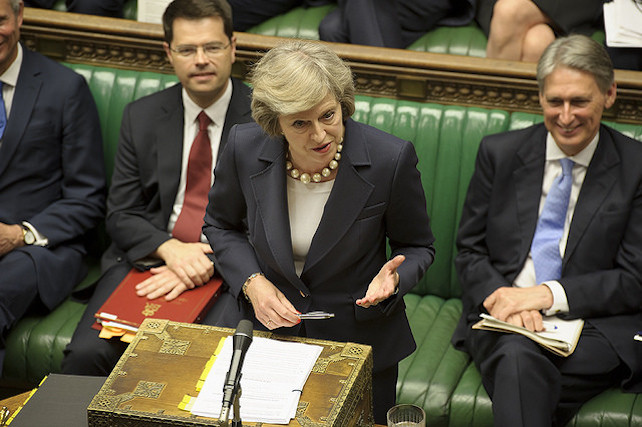For the first time, Brexit negotiators David Davis and Michel Barnier did not start the negotiations with a joint press conference, indicating that the focus was on technical issues, according to Politico. Davis is scheduled to travel to Brussels on Thursday.
The initially agreed timeline stated that “sufficient progress” must be made on three issues (citizens’ rights, the border between Northern Ireland and Ireland, and the financial settlement) before talks on a future relationship can start. The European Council meets on 19-20 October to discuss whether the negotiations have reached that stage; however, it seems that this will be postponed to the December European Council meeting.
The conservative government is weakened by infighting, where the hard Brexiteers push the cabinet for a short transition period, for the UK to be out of the customs union and no European Court of Justice jurisdiction.
On Monday 9 October, prime minister Theresa May announced in the House of Commons that the UK “would continue to be bound by European Court of Justice rulings during the transition period and refused to rule out accepting new Brussels regulations brought in during that time.”
Where is the ball?
May also said that she wanted a free-trade agreement with the EU by March 2019. She added that her Florence speech had been welcomed across Europe, but that “the ball is in their court.” The European Commission replied that “the ball is entirely in the UK’s court.”
Danny Kemp, Brussels deputy bureau chief for the AFP news wire, sums up the recent round of talks
In the meantime, the British government has published two papers on future relations on customs and trade. The customs paper contains a “contingency scenario” which states that the British government is preparing for a no deal. This is partly meant to assuage those hard Brexiteers within the Tory party who want May to strike a harder negotiating position.

